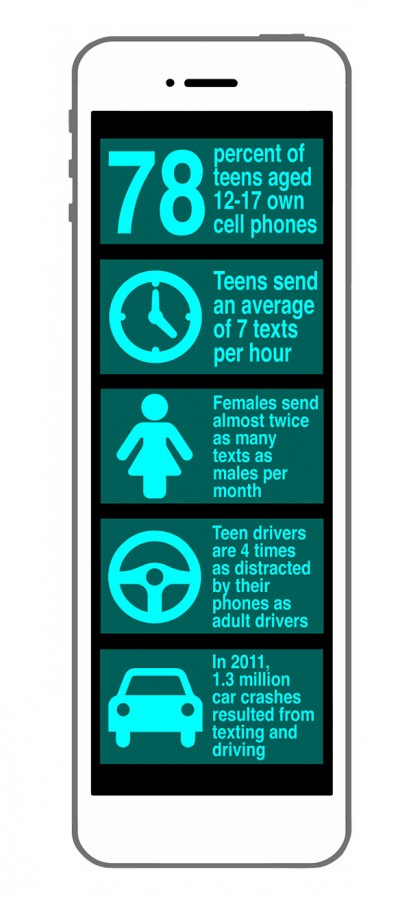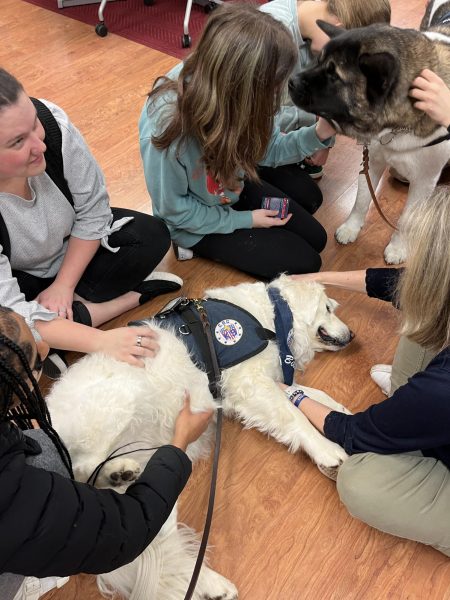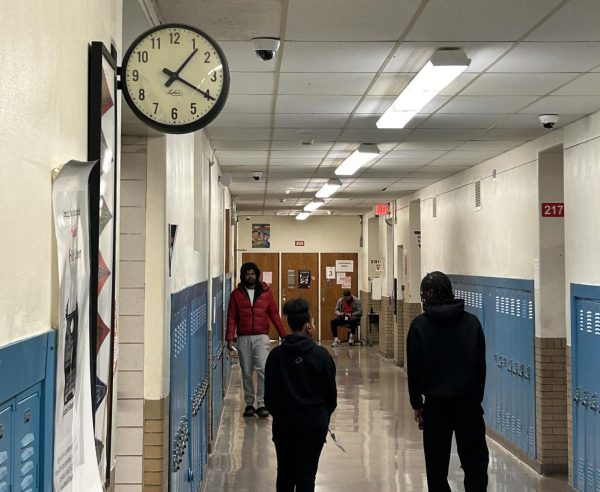In School, Cell Phones Delight and Distract
Teachers face dilemma enforcing unpopular phone policy in classes
As of 2013, the Diagnostic and Statistical Manual of Mental Disorders, a classification of mental disorders published by the American Psychiatric Society, included “internet use disorder” for the first time.
This addition is not surprising, seeing as cell phone use among teenagers and tweens in the U.S. has soared in recent years. As of 2013, seventy-eight percent of teenagers own cell phones, and forty-seven percent of those cell phones are smart phones. Teenagers now have constant access to the Internet, and constant communication with their peers.
“Cell phones are really useful,” said English teacher Erin Mauch, “but the fact that you can reach each other all the time all day long isn’t helping anyone.”
Recently, Shaker Heights High School has claimed to have cracked down on cell phone use during the school day. Security guards can take cell phones from students at will, although they rarely do so.
Sophomore Josh Winslow said the SHHS cell phone policy is “weakly enforced.” However, he likes it that way. “They should leave [the policy] how it is and not enforce it,” he said.
Sophomore Kameron Willis disagreed. “If people actually obeyed the rules, [the cell phone policy] would be alright,” he said, because it would not need to be enforced.
The school’s new strict enforcement of the policy seems to be a shift from previous years. “I find it interesting, the 180 degree spin from last year’s ‘bring your own device’ to this year’s ‘we’ll confiscate it in the hallways,’” said social studies teacher Kyle Fleming.
For many students, however, this shift from “bring your own device” to “put your device away” has little or no effect due to lax enforcement.
“It doesn’t account for certain situations when students have time that is not being occupied by schoolwork,” said sophomore Jacque Berkson. “I use my phone for social media, games, and recreational use during free time as well as schoolwork.”
Mauch feels that there is too much gray area, making the policy difficult to enforce. “When I taught in South Carolina, there was a zero tolerance cell phone policy. If a phone was out in class, the teacher took it, gave it to administration, and the phone had to be picked up by a parent. It was easier to enforce because it was so strict,” she said.
Fleming said he lets students look up information on their phones as part of a lesson. “If we’re just doing class work, I’ll let them plug in and listen to music,” he said.
However, Fleming said that cell phone addiction is becoming a serious problem.
“The [students] that bother me are the ones that are on their phones day in and day out and are failing,” he said. “I would call it cell phone addiction, or school aversion.”
“I know that there are some of you, and even myself at times, who see your phone blinking or vibrating, and it drives you insane if you can’t check it, and to me that’s a sign of addiction,” said Mauch. “I lose your attention as soon as an alert happens.”
Willis agreed. “It is possible to be addicted,” he said. “Cell phones are a distraction. I use it all the time, especially in class.”
“Students would be able to pay far more attention in class if they weren’t allowed to have phones out in class at all,” Mauch said.
Students can use cell phones to cheat and plagiarize in school, sending pictures of notes to each other or looking up answers during class. As never before, Fleming said, teachers must change their teaching methods to prevent students from using cell phones inappropriately.
“I try to use humor to make them put it away,” said Fleming. “Usually if it’s a good student, they will.”
Some teachers, on the other hand, ignore students’ cell phone use in class.
When Winslow uses his cell phone, “the teachers just ignore it,” he said. “As long as you do your work, it doesn’t really matter.”
Willis has experienced similar situations. “On occasion teachers tell me to put [my cell phone] away, but it’s never been taken from me.”
“I am trying to get students to self regulate,” said Mauch. “If I ask you to put [your cell phone] away and I look over at you two minutes later and you have it out again, I’ll take it.”
Willis said that his friends can’t stop looking at their phones when together. “It’s kind of disrespectful,” he said.
Mauch agreed. “When I’m talking into the abyss and everyone is on their phones,” she said, “I feel like I’m just babysitting.”






